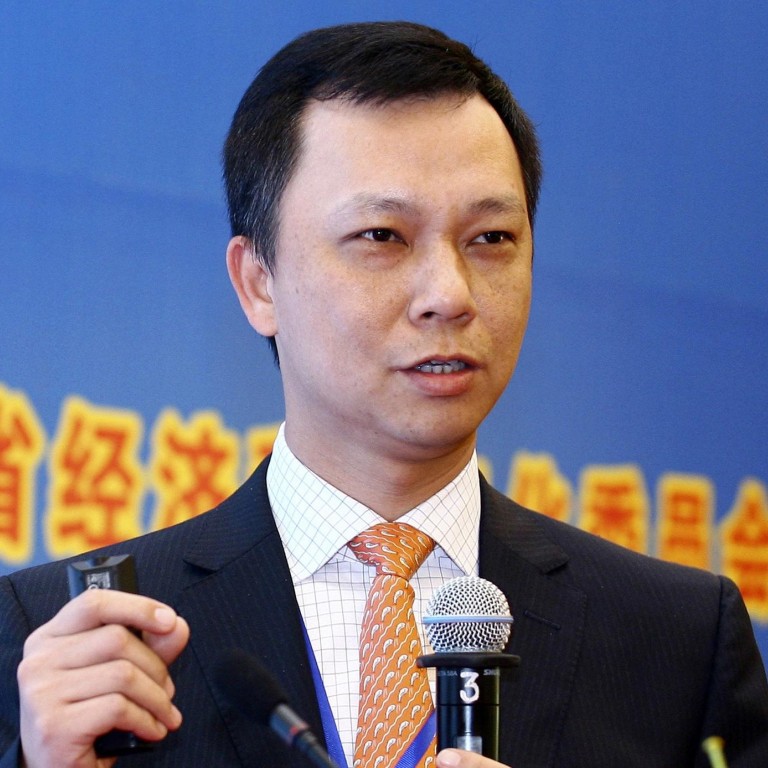
Alibaba drops share sale to revive hopes of a Hong Kong listing
The online giant drops plans to list elsewhere to allow heat over its proposed structure to cool while the HKEx chief takes a sympathetic stance
Chinese e-commerce giant Alibaba has abandoned plans to sell shares anywhere in the near term in a bid to let the heat die down over its controversial share-structure proposal, chief executive Jonathan Lu Zhaoxi told the yesterday, leaving the door open to a Hong Kong listing.
"We decided to put down the issue after the last round of discussions," Lu said in an interview at the company's Hangzhou headquarters.
"Hong Kong may need some time to understand the creative management structure for a creative company," he added, in a sign that the potential HK$100 billion share deal has not yet been permanently lost to the city in favour of an alternative listing venue.
We decided to put down the issue after the last round of discussions
There appears to be movement on the Hong Kong side too, with Hong Kong Exchanges and Clearing chief executive Charles Li Xiaojia saying in his blog yesterday that consideration should be given to "non-standard shareholding structures" for "innovative companies".
In his blog on HKEx's website, Li said there were "a wide range of possibilities that could be considered" when deciding whether or not to let innovative firms' founders have extra power to influence the nomination of the majority of board members.
Proponents of the structure have argued that such an arrangement would preserve the long-term vision, ideas and strategies of company founders - many of whom would have seen their interests diluted after rounds of external financing.
But opponents said this could open the door for the largest shareholders to harm minority shareholders' interests when their interests were not aligned.
Alibaba has been trying to convince Hong Kong regulators to permit a partnership structure allowing its top management to nominate the majority of its board members.
Li, stressing that he was expressing his personal views to further the debate, said whether a partnership structure was allowed or not was not core to the issue, because regulators would look through any partnership to the underlying structure and persons involved.
"You are a shareholder, director, or manager, or all three; whether or not you are a 'partner' is of little relevance," he said.
"What is trickier is how to structure founders' influence on senior management appointments without encroaching on the fundamental power of directors to appoint the leadership on behalf of shareholders.
"We should have a proper debate before making a decision ... we should make the decision proactively."
Li also said greater concessions could be allowed for founders in markets with stronger checks and balances, such as the United States.
"In a less institutionalised and less litigious market such as Hong Kong, such concessions, if given, would need to be moderate and come with checks and balances for use in the event of abuse or true conflict," he said.
In the US, listed firms are allowed to have "dual-class" shares, where founding shareholders are allowed extra voting rights on key company matters. In Hong Kong, shareholders have equal rights.

He emphasised that he was not representing the view of HKEx's listing committee, which has the primary role in deciding whether to reform current regulations, subject to the oversight of the Securities and Futures Commission.
An SFC spokesman declined to comment yesterday.
Market participants said the episode highlighted the conflict of interest inherent in HKEx's dual role as the commercial operator of the exchange and a regulator setting rules for listings.
But Li hit back, saying: "This is not about one listing candidate or fees earned from a listing here or there, it is about choosing a future path and all the responsibility that entails."
The reported last month that sources close to Alibaba, founded by teacher-turned-entrepreneur Jack Ma Yun, had said there was no rush to float shares this year and that the real objective was to get a deal done by the end of 2015. If a deal was not done by then, it would likely mean a renegotiation of an agreement struck last year with major shareholder Yahoo over the terms under which the mainland firm could buy back some of the stake held by the US internet company.
Alibaba's chief strategy officer, Zeng Ming, said yesterday the results of the last round of discussions were not good because the company had underestimated the complexity of negotiations with the SFC.
"We felt we were wronged," Zeng said. "I think, more than anyone else, Jack felt he was wronged. He was so full of enthusiasm and full of hope towards Hong Kong. But above all, we felt that we hadn't done well enough on our side."
He said Alibaba had made Hong Kong its top priority when choosing a listing venue. "But we haven't fully discussed with the SFC or exchanged ideas with them in the past," he said. "We have relied too much on the lawyers of both sides to discuss issues on a technical level."
An Alibaba spokesman said last week that the New York Stock Exchange and Nasdaq had accepted its special partnership structure, which would let its top executives nominate the majority of board members.
But another said the company had yet to select an exchange or appoint underwriters for a listing in the US.
Nasdaq chief executive Bob Greifeld said yesterday Alibaba would be welcomed in New York.
"To the extent they want to come to the US, it's our job to present to them the advantages of listing on Nasdaq," he said.

